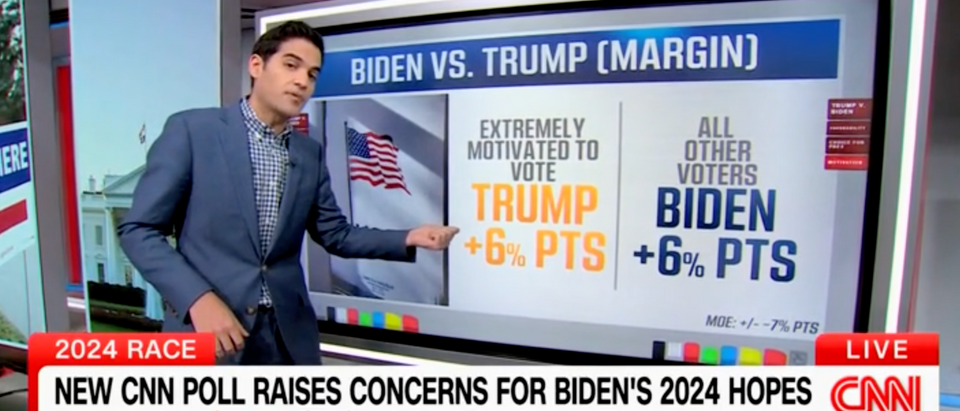CNN’s senior data reporter Harry Enten said Thursday current polls show “lots of good signs for Trump” but spell bad news for President Joe Biden.
A newly released CNN poll found that if the election were held today, 47% of those polled said they’d vote for Trump, while 46% said Biden.
“What I will note is there was not a single poll conducted by CNN during the entire 2020 cycle in which Donald Trump got a higher share of the vote than Joe Biden did,” Enten explained of the data. “So this is a vastly different picture from what we saw from four years ago.”
Enten explained nearly a third of American voters are not fans of Biden or Trump, and those voters will make or break the race.
CNN’s Kate Bolduan then asked who the voters most motivated to hit the polls would choose. (RELATED: CNN Political Director Warns Of ‘Troublingly Low’ Approval Ratings, Dangerous Trend For Biden)
“Yeah, this is another potentially good sign for Donald Trump,” Enten said. “Biden versus Trump, this is the margin. Among those extremely motivated to vote, Trump is up by six percentage points. Among all other voters Biden is up by six percentage points.”
“I think there’s a real question for Joe Biden. Can he motivate those who may not like either candidate, or maybe lukewarm on him, come out and vote? Because if he can, that would be favorable for him, but at this particular point, there are just a lot of good signs for Donald Trump in this poll given all the stuff that’s been going for him, and many not so great signs for Joe Biden.”
The CNN poll also found 46% of voters think any Republican presidential nominee would be preferred over Biden and 58% saying Biden’s policies have worsened economic conditions. Seventy-percent of voters say things in the nation are going badly, and just 33% say they are proud to have someone like Biden as president.
SSRS conducted the CNN poll via online and telephone survey, and it took place between Aug. 25-31 among a random national sample of 1,503 adults. The margin of error was 3.5%.


